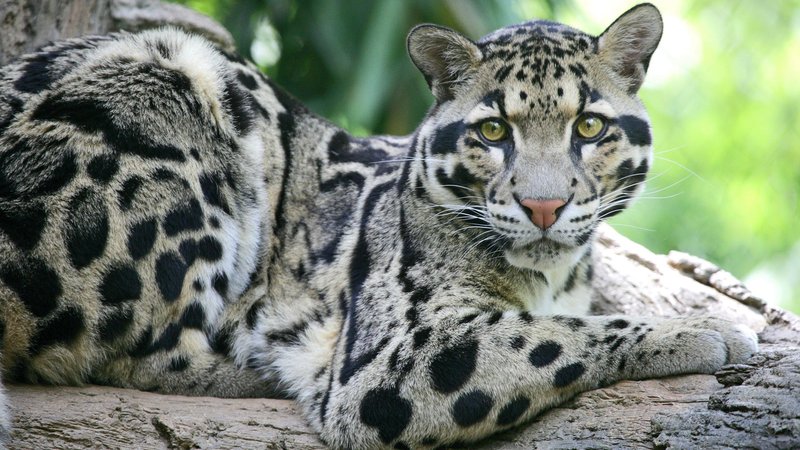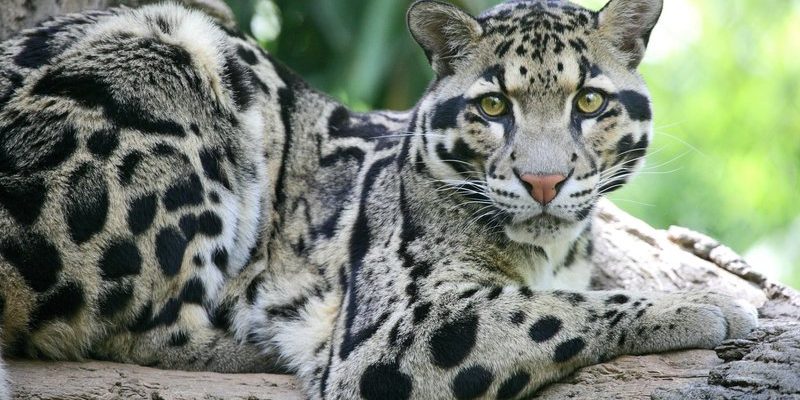
Measuring intelligence in animals often involves understanding their problem-solving skills, social behavior, and adaptability. You might be wondering, “What does that mean for the clouded leopard?” Well, let’s dive into their world and explore their cognitive abilities and behavior. By the end, you’ll have a better understanding of what makes these big cats so intriguing—not just as hunters but as intelligent beings.
What Are Clouded Leopards?
Clouded leopards are unique big cats found in the forests of Southeast Asia. They are medium-sized, with adults weighing around 25 to 50 pounds. Their most striking feature? Those large, cloud-like spots on their fur that provide excellent camouflage in the dense jungle. Their scientific name, *Neofelis nebulosa*, reflects their mysterious and elusive nature.
These cats are primarily nocturnal, meaning they’re most active during the night. This is not just a quirky habit; it’s a strategic choice that plays a significant role in their hunting skills. Imagine trying to stalk your dinner under the cover of darkness, relying on your keen senses and stealth rather than sight alone. Clouded leopards do just that, showcasing a remarkable ability to adapt to their environment.
Cognitive Abilities: How Do They Compare?
When we talk about intelligence in animals, we often measure it against our understanding of human-like traits. Clouded leopards may not have the problem-solving skills of dolphins or the social intelligence of elephants, but they excel in their own ways. Their brains are wired for survival, making them effective hunters.
For instance, they possess excellent spatial awareness, allowing them to navigate through complex forest environments with ease. Think of it as having an internal GPS that guides them through their territory. This skill is crucial, especially when hunting for prey like birds, monkeys, and deer. Their ability to strategize and pounce silently demonstrates a higher level of cognitive function than many other species.
Behavioral Traits of Clouded Leopards
Understanding how clouded leopards behave can reveal a lot about their intelligence. They are solitary animals, which means they prefer to live alone except during mating season. This solitary lifestyle demands strong instincts and skills, as they rely solely on themselves for survival.
Interestingly, clouded leopards can be quite vocal. They communicate using a range of sounds, including growls, meows, and even “sawing” calls. This variety in communication suggests not just emotional expression but also an understanding of social interactions, which is a sign of intelligence. It’s like having a language all their own, which helps them navigate their world.
Problem-Solving Skills: A Closer Look
One of the most fascinating aspects of clouded leopards is their ability to solve problems. These cats have been observed using tools and displaying behaviors that indicate a certain level of intelligence. For example, in captivity, they’ve been seen using their paws to manipulate objects to reach food, showing that they can think critically about their needs.
In the wild, their hunting techniques also reflect problem-solving skills. They often stalk prey, then use their impressive climbing ability to ambush from above. This tactic requires planning and forethought, as they must calculate the right moment to strike. Having keen instincts is one thing, but taking a moment to strategize how to catch dinner is a whole other level of smart!
Social Behavior: Do They Have Friends?
Clouded leopards are generally solitary, but their social behavior is intriguing. During mating season, males and females will come together, but outside of that period, they prefer their own company. This doesn’t mean they aren’t capable of social interactions; rather, it suggests they have different social needs compared to pack animals like wolves.
Their interactions can vary widely. For instance, a mother will care for her cubs, teaching them essential skills for survival. This nurturing behavior shows a level of intelligence in understanding the needs of their young. They engage with their offspring through play, which is crucial for developing physical and social skills. It’s like attending a school of the wild!
Conservation and Understanding Their Intelligence
Recognizing the intelligence of clouded leopards isn’t just interesting; it’s vital for their conservation. These animals are currently listed as vulnerable due to habitat loss and illegal hunting. Understanding their behavior and cognitive abilities can help us create better conservation strategies.
For example, recognizing their solitary nature can guide how we set up protected areas. If we understand that they need large territories to survive, we can work to preserve those spaces. This knowledge is a powerful tool in the fight to save clouded leopards from extinction.
So, how smart is a clouded leopard? They may not have the cognitive skills of some other species, but their intelligence shines through in their unique behaviors and adaptations. From their impressive problem-solving skills to their ability to communicate and navigate their environment, these cats are fascinating examples of evolution in action.
By learning more about clouded leopards, we not only appreciate their beauty and complexity but also commit ourselves to their preservation. We hold the opportunity to ensure that future generations can marvel at the incredible intelligence of clouded leopards, helping them thrive in the wild. After all, the more we know, the better we can protect these extraordinary creatures.

